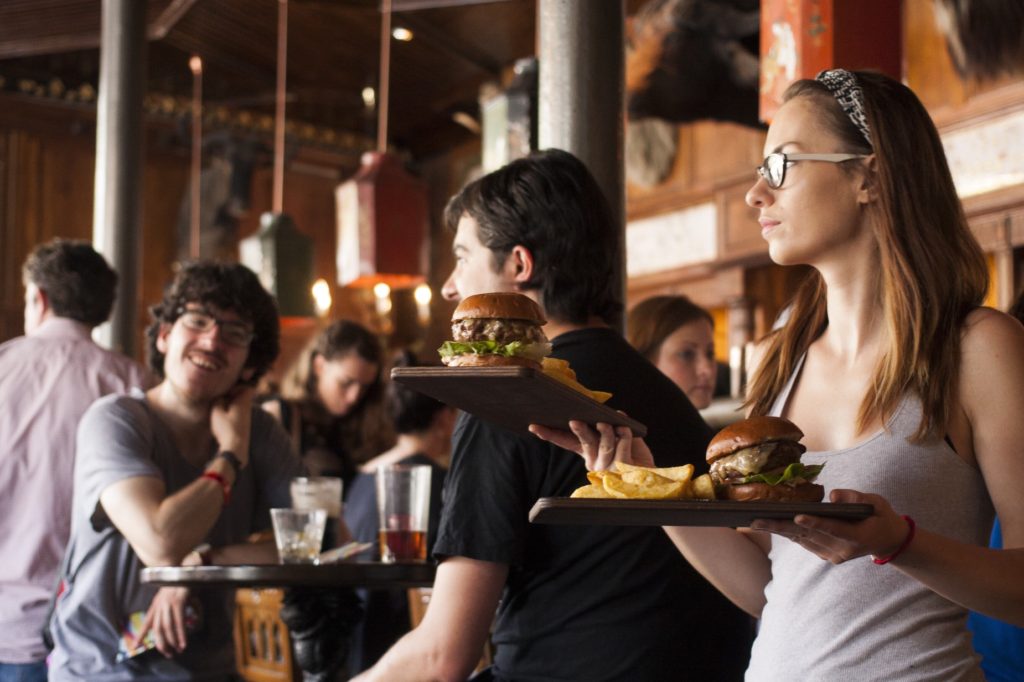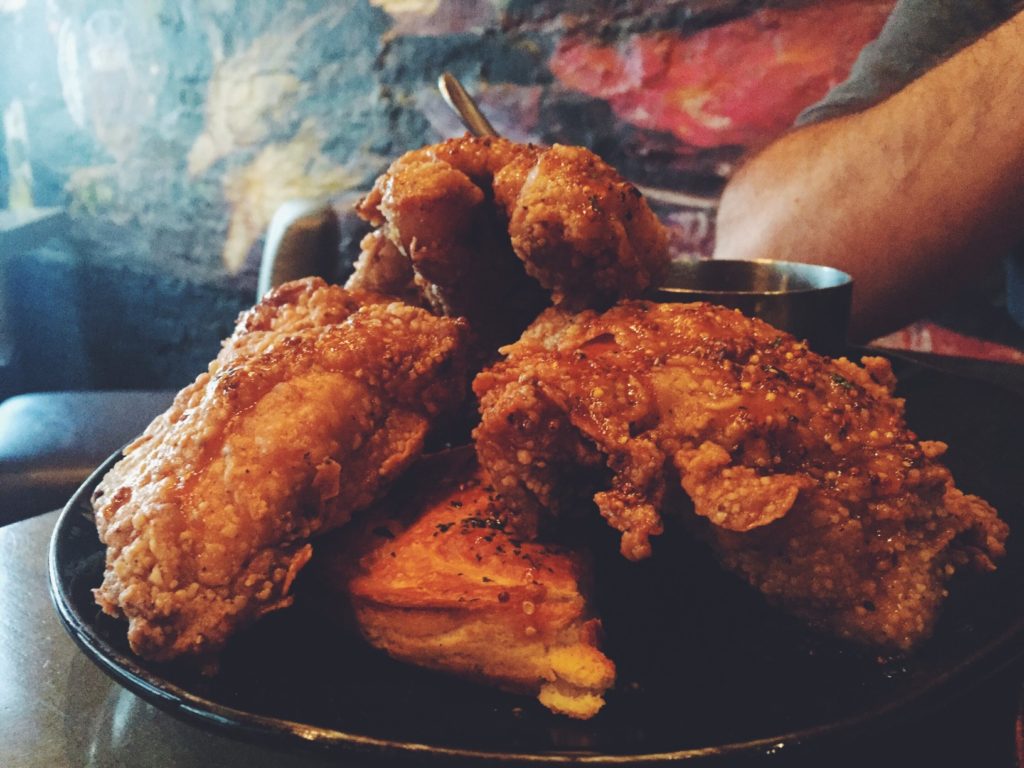Forget everything you once knew about hamburgers. And meatballs and sausages, too. There’s a whole new kind of meat making its way to gourmet tables around the world – and its not traveling by hoof. Clean meat – also known as lab-grown, cultured, or bio meat – is on a rapid trajectory to join plant-based burgers and other ground meat dishes on the menus of fine dining establishments and home grills everywhere. Meatless meat (or is it fake meat?) is officially a Thing now. Are you in?
We first learned about the potential for cruelty-free beef over two years ago. In a chic cafe in San Francisco, over a cup of tea, we met with the CEO and Co-Founder of Memphis Meats, Dr. Uma Valeti. He blew our minds as he explained the new frontier being opened up by food technology: meat grown in a lab from the cells of bovines and fowl.
The promise was of a hamburger that would taste exactly like beef — because it is beef — but cultivated in a cylindrical steel container, potentially at a large scale, rather than through the slaughter of animals and the use of precious water and land to raise them.
At the time we were both fascinated and skeptical. Seriously? Beef grown in a tube? But the idea has quickly moved from the stuff of Silicon Valley coffee shops to actual practice. Lab-grown meat may be coming to the table in the next couple of years.

This is excellent news for the planet for a number of reasons. First, we know that animal-based proteins, especially red meat, can be sub-optimal for good heart health and weight management. Meat isn’t so great for the environment, either. The United Nations Food and Agriculture Organization estimates that livestock production is responsible for 14.5% of global greenhouse gas emissions (other sources say it could be up to 50%). In addition, industrial animal agriculture is quickly depleting farmland and water resources. Yet despite all this, there are people with serious protein deficiencies in all parts of the world, some with no stable and consistent access to protein of any kind. The current situation is unsustainable. But scalable solutions seem to be at hand.
In 2013, a team of Dutch scientists at Mosa Meat debuted a lab-grown burger with a price tag of a cool $325,000.
More recently, Memphis Meats fried the first-ever “lab meatball” in a public taste test at a cost of $18,000 per pound. Last year, the company conducted another public taste-test, this time of battered and fried lab-grown chicken strips and lab-grown duck a l’orange. The taste testers gave both a thumbs-up (further proof, in the case of the chicken strips, that if you put ANYTHING in batter and then fry it, it’s going to taste great).
Recent reports claim that Mosa Meat’s lab-grown beef products cost $12 per patty today, which if true is a significant development. Memphis Meats estimates that the cost of one pound of lab-grown chicken meat is still about $9,000. Until the prices come down, the lab-grown meats won’t be commercially viable.
Price aside, though, there’s a growing consensus that it’s tough to differentiate these lab-grown meats from the real thing when it comes to taste and texture.

What’s the basis for these lab-grown meats? Simply put, food scientists perform a biopsy on living livestock to extract stem cells. Next, these stem cells are given several weeks to grow in a laboratory environment, resulting in real meat that doesn’t involve killing an animal.
In addition to potentially allowing meat to be produced in regions where it’s not possible today, growing meat in labs like this – even in areas that can support cattle farming – cuts down on the land required for raising livestock, reduces the need for water, and produces far less greenhouse gas emissions.
Given that the meat is grown in a sterile environment, its free of dangerous bacteria, and the antibiotics and growth hormones that are typically used to help grow food-producing animals.
Growing meat in a lab also opens up the possibilities of removing the parts of the food that make it less healthy than plants, including things like saturated fat. In the lab, that can be replaced with healthier options like omega-3 fatty acids. That’s a game-changer for public health. If consumers and dining establishments can look past the ick factor, the opportunity to relieve the strain on the environment from animal husbandry, address world hunger issues, and improve global public health are not insignificant. So. Cool.
We should note that lab-grown meat products are not vegan, although some vegans choose to support the concept, as it has potential to reduce the number of animals slaughtered for food. None of these lab-grown products is yet available to the general public, due to the cost.
But that hasn’t stopped early-stage investors – or the meat industry – from paying attention. Bill Gates and Richard Branson have invested in lab-grown meat companies, including Memphis Meats. Mosa Meat counts Google co-founder Sergey Brin among its investors. Meanwhile, large meat producers, led by the US Cattlemen’s Association (USCA), are raising consumer protection issues. The USDA and FDA have oversight of the matter in America, and they’re being lobbied to prohibit lab-grown (and plant-based) products from being labeled “meat,” on the basis that such labels confuse consumers about what they’re buying.

While all of that gets sorted out, and lab-grown meat companies work to get their cost per pound down, there are plant-based meat alternatives on the market to check out right now.
Beyond Meat, a Los Angeles-based plant-based protein company, attracted early investments from Twitter founders Biz Stone and Evan Williams, Microsoft founder Bill Gates, former McDonald’s chief Don Thompson and the actor Leonardo DiCaprio. Tyson Foods, the largest US meat processing company, recently acquired a 5% stake in the company. Beyond Meat has succeeded in bringing the cost of a meatless burger down to approximately $11 per pound. As a result, the brand has been able to put their Beyond Burger, Beyond Sausages and Beyond Chicken Strips on the shelves of grocery stores like Amazon Fresh and Target, and also at over 10,000 restaurants, including more upscale fast dining chains like Bareburger, Hong Kong’s Green Common, Burgerfi, Alamo Drafthouse. You can also find them at concession stands at Yankee and Angel Stadiums.
Beyond Meat will make its UK retail debut in Tesco this August, where its burgers will be sold alongside fresh meat in the refrigerated section of the store. The Beyond Burger will also go on sale in London’s Honest Burgers chain.
Another wholly plant-based option that’s making a play for upscale consumers is Impossible Foods’ Impossible Burger, which includes as its key ingredient a protein called heme, produced by genetically engineered yeast (it imparts “bloodiness” and “meatiness”). Chic vegetarian restaurant Crossroads in Beverly Hills has had the burgers on their menu for some time, as have David Chang’s Momofuku Nishi in Manhattan. In Hong Kong, you can find them at Beef & Liberty, Hotel ICON, Little Bao, Happy Paradise and JINJUU. Reports are that the burgers are now in over 2,000 upscale restaurants around the world – we had one in LA, and we loved it. Air New Zealand set off a firestorm this week when it began promoting the availability of the burger in its First and Business Class cabins on flights from LA – the country’s beef industry and political class didn’t take kindly to that.
Success attracts competition; perhaps not surprisingly, KFC (formerly known as Kentucky Fried Chicken) announced last week that it’s developing a vegetarian version of its fried chicken made from plants. The product is being developed first for locations in the U.K. In addition, Finless Foods, is developing a plant-based fish substitute, and Just (formerly Hampton Creek) is hard at work trying to recreate fois gras with plant-based ingredients.

In the meantime, if you want to play around with the idea of lab-grown meat a bit while you wait for the cost to come down, you can head to Bistro In Vitro, an online fictitious restaurant with a menu of “in vitro” met dishes that may one day end up in restaurants and homes — its purpose is to spark discussion, recipe development and interest in this brave new world.
Who knows? It may be the case that fooling our palates with “meatless meats” may turn out to be really wise.







